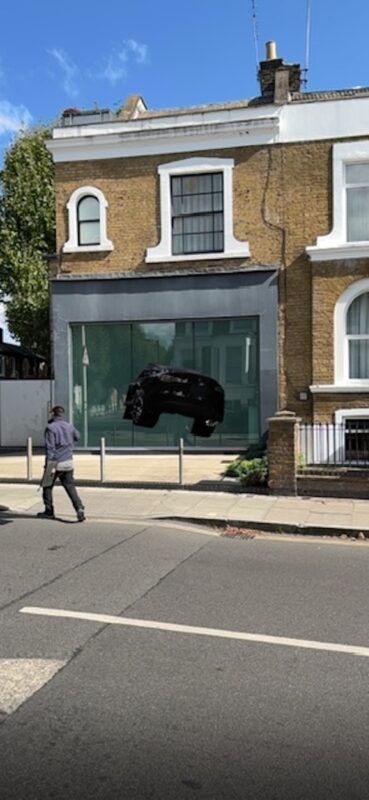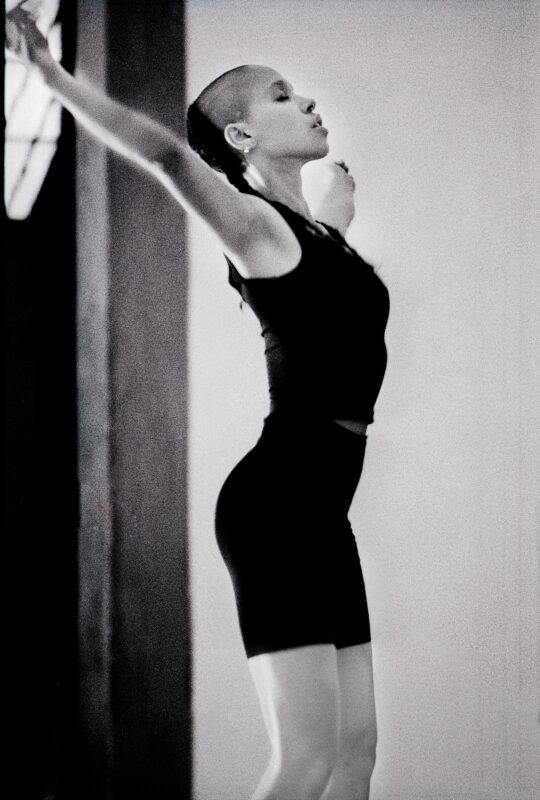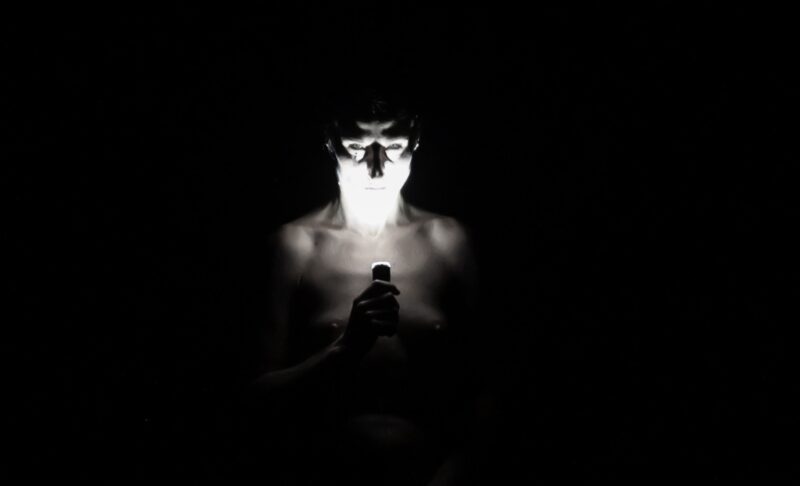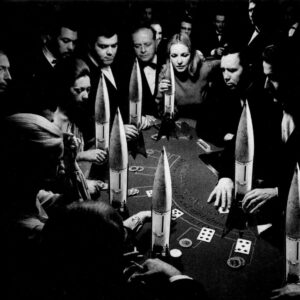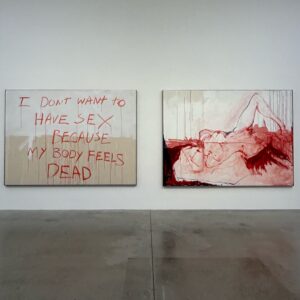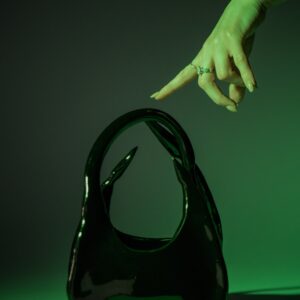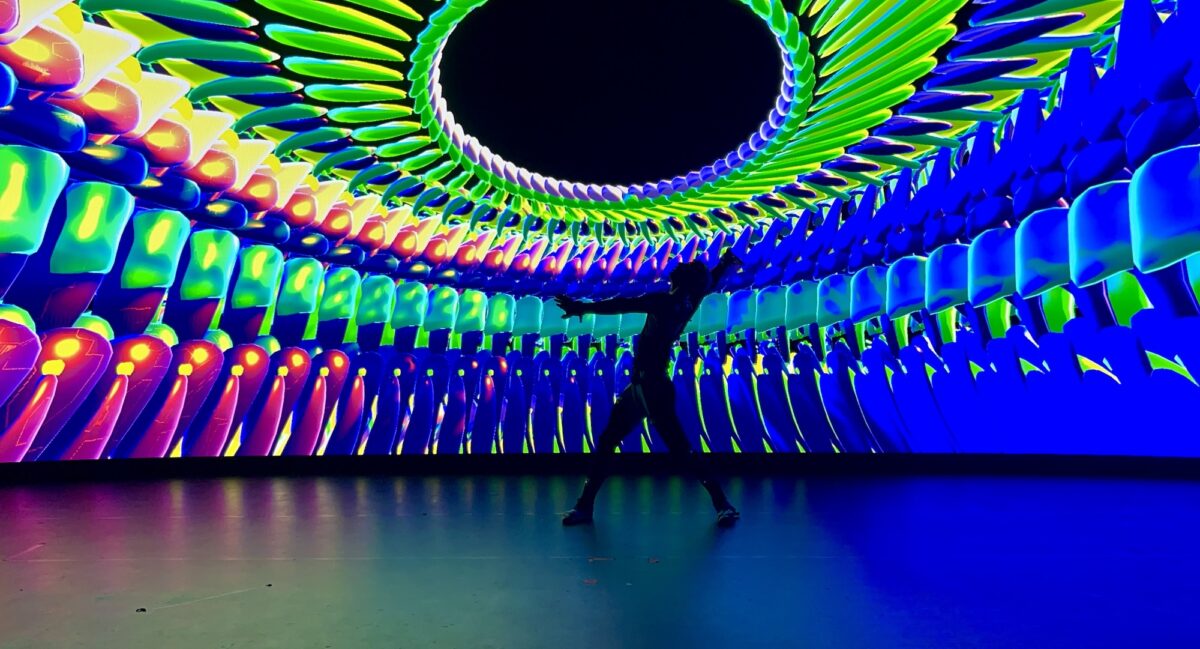
DIGITAL BODY FESTIVAL, the brand new festival exploring the moving body + digital technology, founded by Alexander Whitley Dance Company and creatively produced by Mediale, today reveals its inaugural programme.
Taking place at Hackney Bridge, Hackney Wick from 15th-17th November 2024, the Festival celebrates
developments in interactive and immersive technologies, which enable wildly new forms of physical experience, exploding the possible forms the moving body can take and opening up exciting possibilities for artists and audiences.
Reaching across multiple art forms, including dance, music, fashion and architecture, a new frontier of creative expression has emerged, which demands a radically different kind of stage: Digital Body Festival is brought together under five thematic strands, presenting immersive, VR (Virtual Reality) and AR (Augmented Reality) installations, including new commissions, alongside live performances, talks, panels and workshops.
Drawing many amazing examples of this work together in one place, Digital Body Festival today reveals the first highlights for this exciting new frontier of physicality and bodily expression:
FUTURES IN MOTION: INTERACTIVE EXHIBITION
An open space of creativity inviting visitors to move, interact and playfully reflect on their experience of embodiment, the Festival’s central Futures in Motion interactive exhibition brings together artworks including Vast Body by Vincent Morisset & Caroline Robert, a playful and visually arresting collaborative experiment on movement, where a myriad of alter digital egos continuously try to replicate the movements of the person facing it. Interpreting your behaviour, the artwork’s software distils this continually changing input into a projection of a body that moves fluidly with yours, yet fluctuates continuously between different bodies and identities. The work draws on timely questions of identity, empathy and our relationship with other-than-human intelligences.
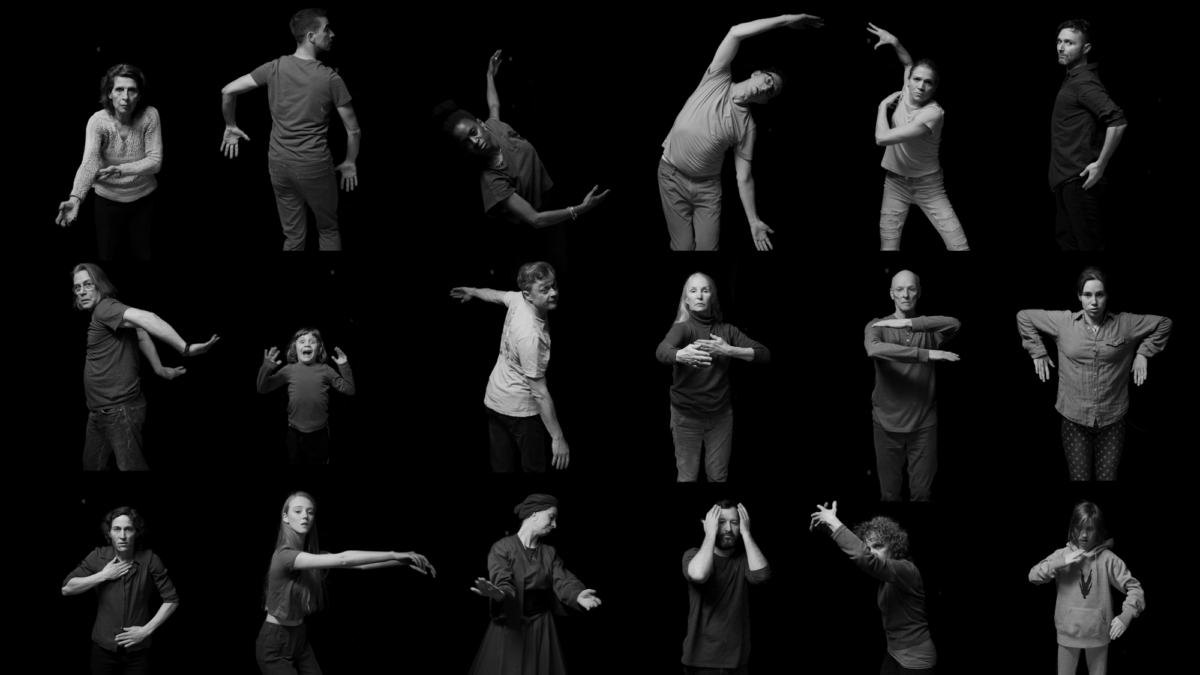
Incantation by Sian Fan is a digital performance combining dance, motion capture and video-gaming to explore liminal states, magic and myth in the digital age, and the commodification of the Asiatic body. Creeping into the den of a part-plant, part-human creature, the work interrogates how spiritual and ancient beliefs can coexist with technology, infusing lore and legend with video game aesthetics.
Anti-Body Interactive from the Uncharted Limbo Collective and Festival founder Alexander Whitley, is an immersive playground for two, inspired by its original presentation at Sadlers Wells. An interactive experience, it combines the algorithms used in the project’s original performance with real-time motion tracking, giving you the chance to play with the same tools Alexander’s dancers used. For a few minutes, you become the artist and the art, exploring what happens when our bodies go digital: Where do ‘you’ end and the technology begin?
FUTURES IN MOTION: VR GALLERY & AR WORKS
Five VR and AR works compliment the immersive installations, including Sarah Ticho (Hatsumi) and Niki Smit (Monobanda)’s award-winning Soul Paint, which exists at the intersection of immersive art, scientific research, and healthcare, to explore the richness of the embodied human experience. Narrated by actor and activist Rosario Dawson, participants are taken on a journey to explore and creatively express feelings of emotion and sensations in the body. Through the process of body mapping, 3D drawing and movement, they are invited to reveal their unique inner reality and then observe the creations of others.
Duchampiana by Lilian Hess is an artistic VR installation focused on the theme of body politics. Departing from one of art history’s most notorious paintings – Duchamp’s ‘Nude Descending A Staircase No 2’ – this immersive installation invites its audience to engage in a physical transgression of social constructs; whilst Cameron Kostopoulos’s Body of Mine, is an award-winning, full-body VR experience that lets you inhabit the body of another gender and discover stories from transgender individuals. Combining body, face, and eye tracking with personal interviews of transgender individuals, the experimental storytelling experience allows you to hear, discover, and experience stories of gender dysphoria and euphoria.
One of two AR works in the festival, L’Entree by Lisa Jamhoury reveals virtual sculptures situated in pedestrianised areas humming with human movement. The sculptures, created in a gaming engine, each perform a virtual ‘dance’ immersing viewers in their unique forms. The experience pulls viewers between tangible city streets and the intangible world of XR technology; meanwhile, Dance Trail by Gilles Jobin is an augmented reality dance piece that enables users to bring virtual dancers into the real world through their smartphone or tablet
DIGITAL BODIES GALLERY
In the festival’s Digital Bodies Gallery, cutting-edge works from multiple artistic viewpoints reveal how moving bodies are constructed and represented through digital technologies and artificial intelligence. The programme includes two brand works, commissioned by the Festival, which will premiere throughout the weekend: Dance We Do and Living with my Digital Twin. Dance We Do from Olivia Ema & Lex Fefegha, inspired by Ntozake Shange’s book on Black Dance, is an Afro-surrealist dance film. Set in a distant reality where communication occurs through fluid, water-like body movements, the film takes inspiration from the Ekombi traditional dance of Nigeria’s Efik people. Living with my Digital Twin by Jason Yip and Sari Mizoe draws inspiration from the Japanese dance phenomenon, Parapara. It explores the influence of technology on self-presentation, highlighting the duality of subcultures and the lived experience of constantly balancing different identities.
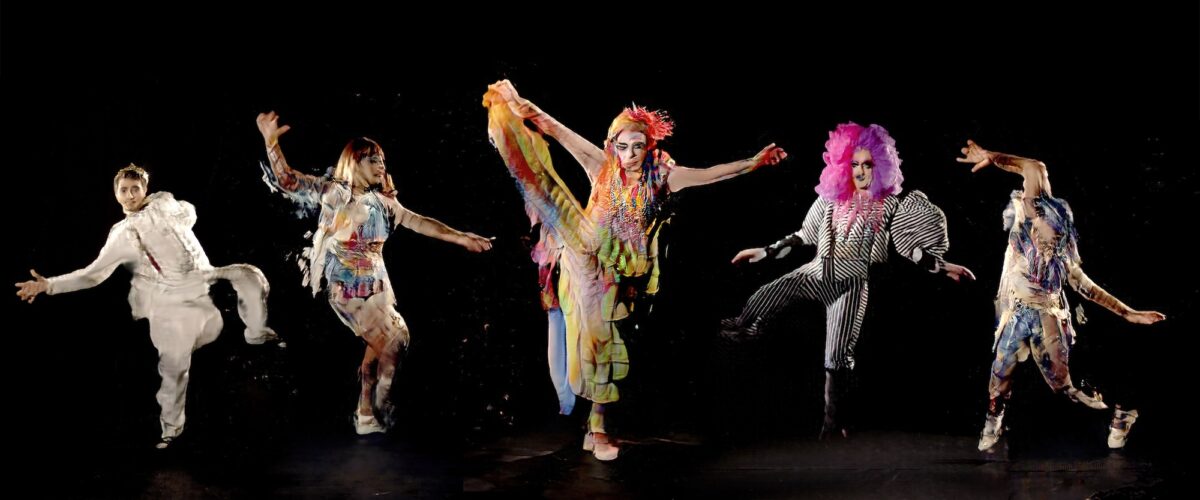
In addition to the new commissions, five further works will be presented in the Digital Bodies Gallery, including Jake Elwes’ ongoing project, Zizi in Motion: A Deepfake Drag Utopia, a silent video series consisting of life-size deepfakes of a range of London drag performers, which explore how queer communities can subvert deepfake technology, using it in an ethical and consensual way to celebrate queer bodies. The Portal’s Keeper meanwhile follows the journey of LaJuné McMillian’s inner child, diving into an alternate reality through meditation and prayer. Particles radiate from their young avatar – an abstract representation of the energy we access and emit when we are able to move through the world freely.
Nina Davies’ Express Yourself on the Battlefield explores the economic shift taking place for dance practitioners through the use and sale of choreographic material in video games such as Fortnite; whilst Fragile Memories by Irina Angles & Dr Formalyst embraces human memory’s malleability, underscoring the tension between preserving and reshaping personal experiences. Finally, Choreographic Camouflage directed by designer Liam Young and choreographed by Jacob Jonas, is inspired by the recent evolution of mask-wearing that has restricted the effectiveness of facial detection systems, with body tracking and gait detection now a critical form of surveillance. Working with dancers from The Jacob Jonas Company, a series of new dance movements have been developed to distort the proportions, symmetry and form of the body in order to render it invisible to the body detection software being rolled out by cities around the world.
Memo Akten and Katie Peyton Hofstadter bring their extraordinary Superradiance to the festival, in a co presentation with the BFI London Film Festival at BFI IMAX. This multiscreen video and sound installation invites the viewer to extend their bodily perception beyond the skin and into the living environment. Integrating artificial intelligence with dance and insights from neuroscience, the project challenges us to not only understand but also feel our profound relationship with the planet. By leveraging the cognitive phenomenon of embodied simulation—where the brain of an observer mirrors the movements of others—Superradiance creates an immersive space where participants can feel the movements of the animate Earth.
This mirrors the rhythms of nature, inviting visitors to extend their bodily awareness into forests, oceans, and beyond, reminding us that the living environment is not separate from us but an integral part of who we are.
PERFORMING TECHNOLOGIES
Performing Technologies brings together world-class dancers, musicians and DJs, with cutting-edge technology to showcase the latest developments in interactive performance art. Boundless Body by Elizabeth Arifien is a multi-layered, sensory dance performance that will take audiences into a transcendental space, unifying dance, costume, technology and music.
Another live performance, Cosmogony, by Cie Gilles Jobin features three dancers who are motion captured live at Gilles Jobin Company’s studio in Geneva and screened in real time for a worldwide audience; whilst Colette Sadler’s ARK1 is a multimedia performance that explores the precarious futures of human culture amid the life-altering interventions of artificial intelligence and ecological crisis, where human life is already a distant memory.
As part of a unique collaboration between Digital Body Festival and Tanz Karlsruhe, Germany, Alexander Whitley Dance Company’s Otmo Live connects dancers in each location using the Goldsmiths Mocap Streamer technology. This experimental distributed performance explores the intersection of emerging spatial technologies and traditional movement practices. Placing two dancers in different locations, the piece brings them together to perform a duet within a shared virtual environment.
Alongside these major installations and special live events are two further festival strands: HYBRID LAB: PROTOTYPES, R&D AND WORKSHOPS, which offer a chance to learn, observe and take part in the creation of digital motion; and BODIES OF KNOWLEDGE bringing together talks and panel discussions with experts, artists and digital innovators who will discuss the new directions and ideas that are driving forward thought around digital culture, technology and theories of embodiment.
Founded by Alexander Whitley (Creative Director) of Alexander Whitley Dance Company, with Creative Production by Mediale, and presented in collaboration with the UCL-funded Digital Innovation Network, Digital Body Festival gives a platform to world-class artists, thinkers and emerging talent to showcase work on screen and in extended reality, inviting the public to move and explore physical creativity in all its forms.
Digital Body Festival: 15th – 17th November 2024, Hackney Bridge, Units 1-28, Echo Building, E Bay Lane, London E15 2SJ @digitalbodyfest
BUY: TICKETS. digital-body.com

